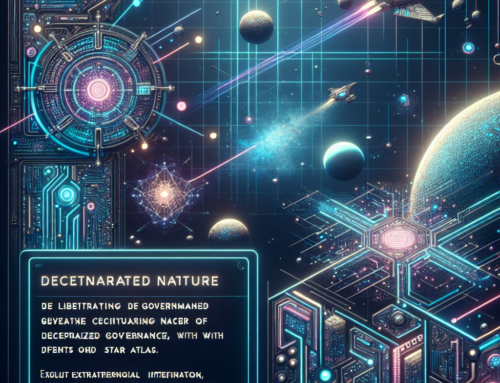Public Choice Theory in Star Atlas: Analyzing Choices

Public Choice Theory in Star Atlas: Analyzing Choices
Public Choice Theory is an intriguing lens through which we can analyze decision-making processes within collective action environments, such as those found in gaming ecosystems like Star Atlas. This theory applies economic principles to political science, examining how individuals’ choices can affect group outcomes. In the expansive universe of Star Atlas, where players interact within a decentralized economy, understanding how public choice plays out can provide valuable insights for both players and investors.
Understanding Public Choice Theory
At its core, Public Choice Theory suggests that individuals act in their self-interest when making decisions, even when they are part of a larger group. This can lead to outcomes that may not align with the collective good. In the realm of Star Atlas, this theory becomes particularly relevant when considering how players interact within the game’s political and economic systems, making choices about resources, alliances, and strategic actions.
Decision-Making in Star Atlas
In Star Atlas, players assume various roles — from explorers and traders to pirates and military commanders. Each role comes with its own set of incentives and potential benefits, which can be analyzed through the lens of Public Choice Theory. For example, a player who invests in mining might prioritize their profits, possibly at the expense of the game’s communal resources. This self-interest can lead to competition, negotiations, and, at times, conflict with other players.
Collective Action Problems
One of the main challenges highlighted by Public Choice Theory is the “collective action problem,” where individuals or entities pursue personal interests that can undermine group achievements. In Star Atlas, this is reflected in governance models and faction dynamics. If individual players prioritize short-term gains or overlook the long-term impact of their actions, the community may face deteriorating conditions, such as resource depletion or instability in the game economy.
Governance and Voting Dynamics
Star Atlas incorporates governance mechanics allowing players to vote on key decisions, such as resource management and development projects. Here, Public Choice Theory helps us analyze how the voting process might be swayed by self-interested motives. Players may support ideas that maximize their own gains while ignoring broader implications. This can lead to decision-making that favors the few over the many, demonstrating a core tenet of Public Choice Theory.
Strategies for Better Collective Outcomes
Understanding the implications of Public Choice Theory can lead to improved strategies for players and community leaders in Star Atlas. Here are a few considerations:
-
Incentive Structures: Design incentives that align individual interests with collective benefits to encourage cooperation among players.
-
Transparent Governance: Promote clarity in decision-making processes to hold players accountable and help them consider the broader impact of their choices.
- Community Engagement: Foster discussions and collaborations to build alliances, encouraging shared goals that enhance collective strategies.
Conclusion
Public Choice Theory offers a powerful framework for analyzing the dynamics at play within Star Atlas. By recognizing how individual choices shape group outcomes, players can make more informed decisions that not only benefit their personal objectives but also contribute positively to the game’s ecosystem. As you navigate the cosmos of Star Atlas, considering these elements can enhance your gameplay experience and impact.
For more insights and detailed analytics on Star Atlas, check out our data modules at Titan Analytics. If you have any questions or need more information, feel free to contact us. Happy gaming!




